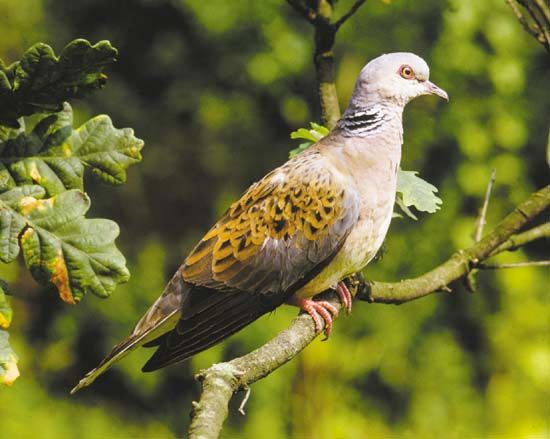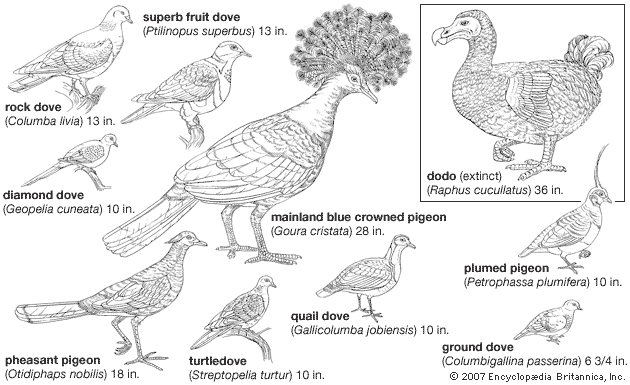turtledove
- Also spelled:
- turtle dove
- Related Topics:
- dove
turtledove, (Streptopelia turtur), European and North African bird of the pigeon family, Columbidae (order Columbiformes), that is the namesake of its genus. The turtledove is 28 cm (11 inches) long. Its body is reddish brown, the head is blue-gray, and the tail is marked with a white tip. It is a ground feeder that eats prodigious amounts of small seeds. A migratory species, it winters in northern Africa.
The name turtledove is commonly applied to the other Streptopelia species, including collared doves (S. decaocto) and ring-necked doves (S. capicola). These slim-bodied, fast-flying gamebirds are found throughout the temperate and tropical Old World. The ringed turtledove, or ringdove, is a domestic variant of S. turtur that now has feral New World populations in California and Florida; it is sometimes given species status as S. risoria. The laughing dove (S. senegalensis) and spotted dove (S. chinensis) have also been introduced outside their native habitats. The use of the term turtle in this pigeon’s common name is derived from the sound of its call; the bird has no association with shelled reptiles.




















